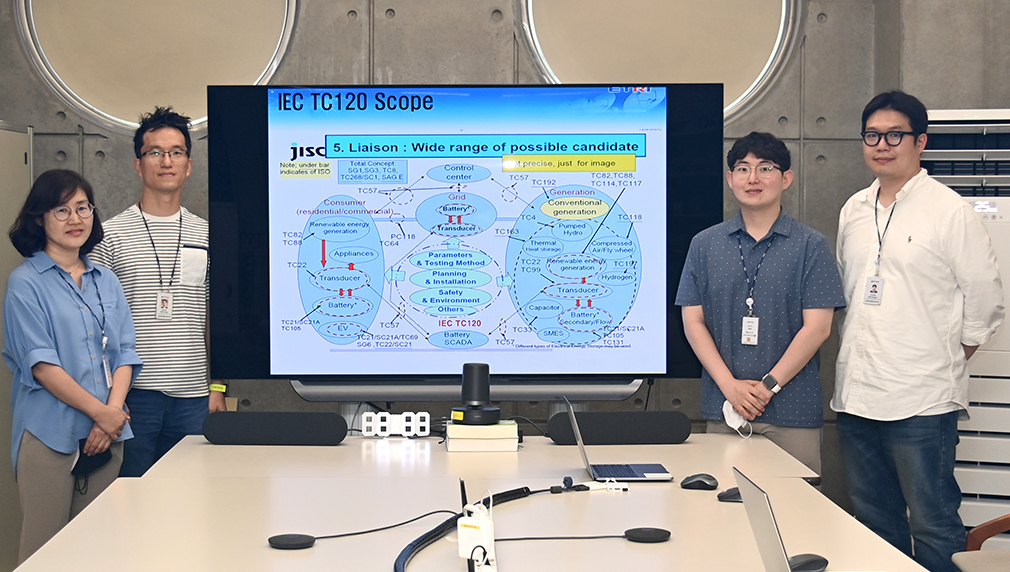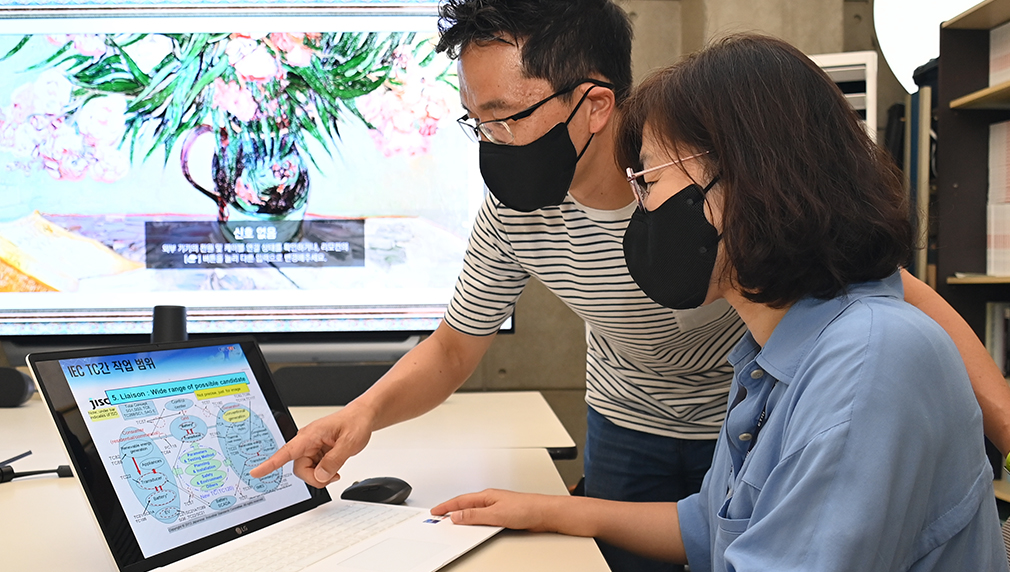
FOCUS ON ICT
ETRI Developed International Standards for Microgrid to Achieve Carbon Net Zero
- 2 essential elements of microgrid system were
approved as international standards of IEC
- Expected to contribute to the wider deplyment of energy storage systems
and demand response energy management
ETRI research team has developed international standards for microgrid technology that maximizes energy usage efficiency through the convergence of electrical technology and information and communication technology (ICT). The establishment of a stable and efficient energy utilization system is expected to serve as a solid foundation for the realization of carbon net zero.
The Electronics and Telecommunications Research Institute (ETRI) said 2 international standards for energy storage system (ESS) and demand response (DR), which are the key elements of the microgrid system, have been approved by the Technical Committee of the Electrical Energy Storage System (TC120), Industrial Process Measurement, Control and Automation (TC65) of the International Electrotechnical Commission (IEC).
The importance of smart grid technology is getting increase in accordance with the efforts of the international community to realize carbon net zero. Microgrid is a small part of electrical grid consisting of a small power system that is independent from a large power system. Microgrid can be operated independently from the electrical grid because it consists of power consumers (consumers), energy sources (suppliers), energy storage devices and energy management systems. It can be connected to and operated with the large scale power systems.

The international standards for microgrid developed and established by ETRI this time are 2 items; the requirements and use cases for using energy storage systems in power peak management and emergency power support, and the framework of demand response (DR)-based energy management system for industrial facilities such as factories.
Among the essential elements of the microgrid, the energy storage system stores the produced energy and then discharges the energy when electricity is not generated in the renewable energy sources or the amount of energy demand exceeds the pre-defined threshold to maintain a stable operation of microgird power systems. This prevents the waste of excess energy and enables the stable and efficient energy use.
The research team analyzed the structure of an emergency power support system based on the conventional diesel generator and developed the requirements and guidelines for applying the energy storage systems to the emergency power support system. The requiments and guideliens were presented in the approved international standard. The wider deployment of emergency power support system based on energy storage system is expected to significantly reduce carbon emissions compared to the conventional system. Moreover, it is the first approved IEC international standard for energy storage system developed by Korean experts in TC120.

In addition, ETRI, in collaboration with Hanyang University, published a demand response-based energy management system framework for industrial facilities with high electricity consumption as an international standard. Manufacturers, such as factories, consume significantly more power than ordinary consumers during operation and production. Accordingly, a specialized energy management system for industrial consumers is required, and to establish this, it is necessary to standardize the interface between the smart grid and the energy management system in manufacturers.
The research team developed an energy management system standard for industrial facilities interconnected to a microgrid predicts demand response through electricity usage data such as power consumption pattern and local power supply plan. It is expected that manufacturers will be able to use the standard to effectively manage electricity charge or electricity demand.
Shin-Gak Kang, head of ETRI’s Standards Research Division, said, “Carbon net zero technology is actively being developed throughout the world to mitigate the climate change. It is a very significant achievement to develop the international standards lead by a domestic research team that are crucial for realizing carbon net zero in microgrid. We will further contribute to constructing the intelligent and efficient electricity market by tightly integrating the energy storage systems with smart grids in the future.”
The research team plans to get the approval of international standard for AI-based smart home energy management technology. The team will also perform the follow up research for the microgrid application technologies such as Building Energy Management System (BEMS) and Factory Energy Management System (FEMS).
This study was developed through the research project 'Establishment of the foundation for international microgrid standardization' supported by the Ministry of Trade, Industry and Energy and the Korea Institute of Energy Technology Evaluation & Planning.

Sangjin Jeong, Chief Technical Staff
ICT convergence standards Research section
(+82-42-860-1877, sjjeong@etri.re.kr)
